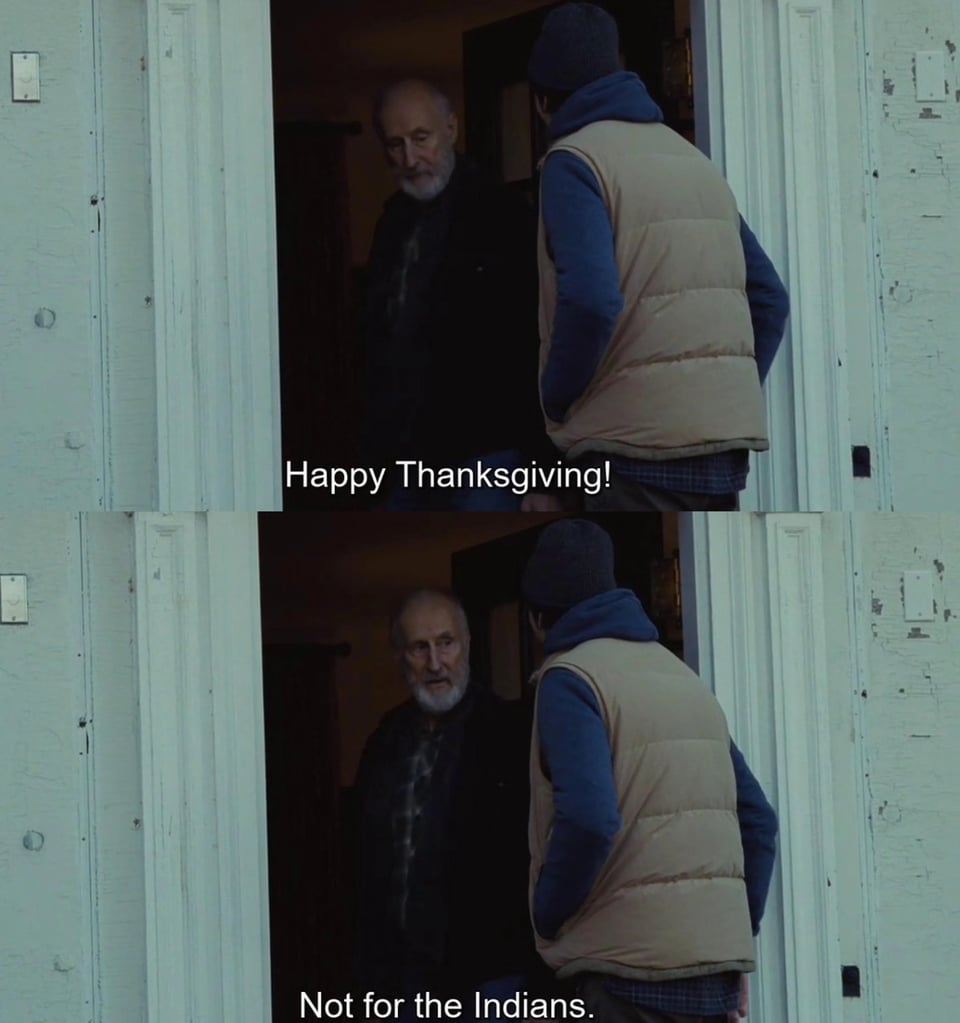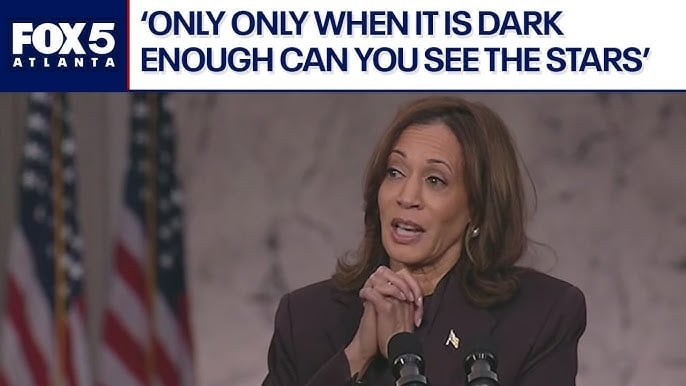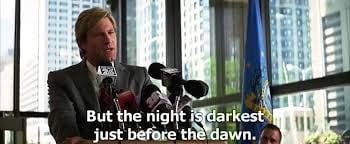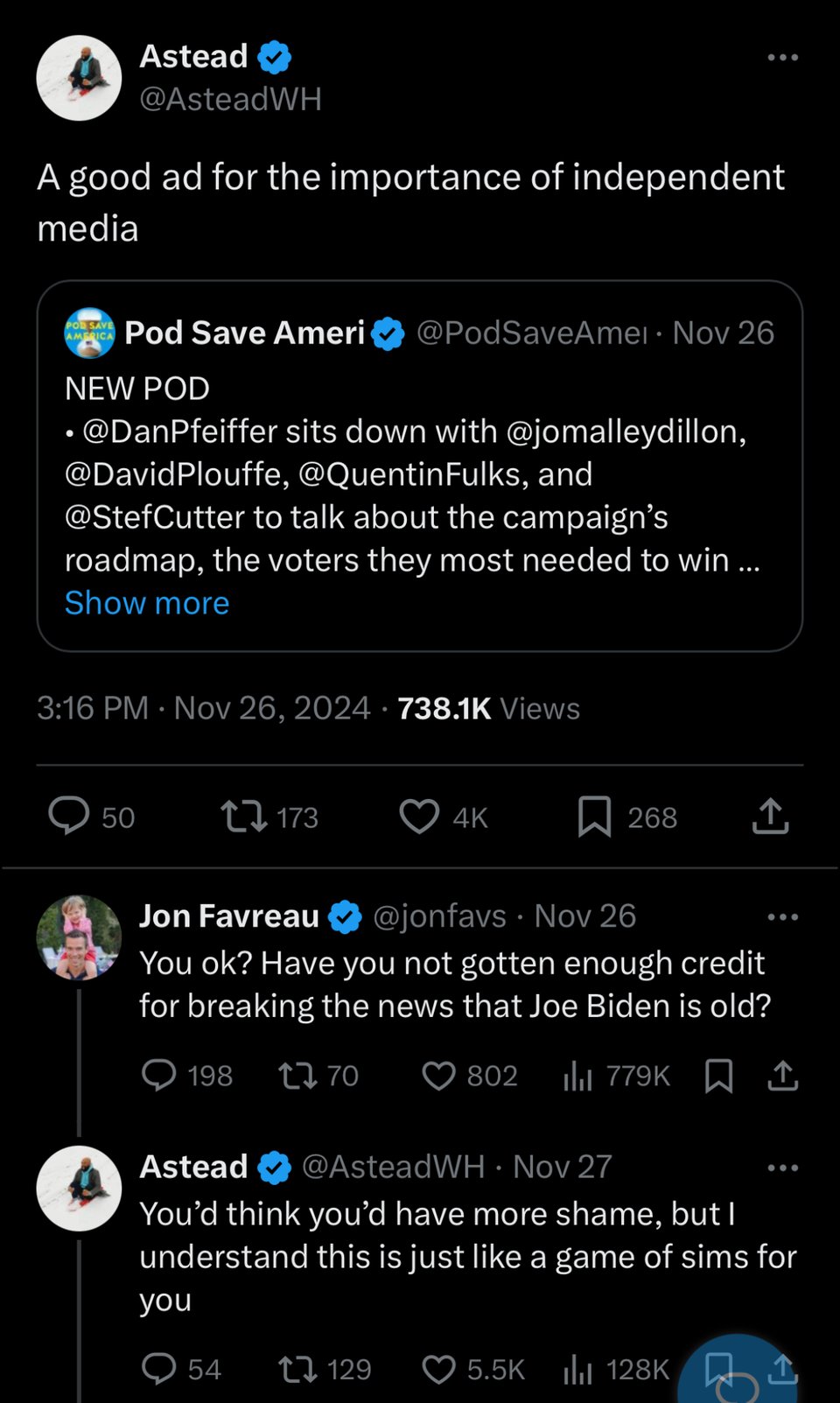Why Joe Biden’s Late Apology Is Better Than Kamala Harris’ Absent One
In late October, lost now to the pre-election chaos, President Biden made a Thanksgiving-appropriate apology. Not to the Turkeys he didn’t pardon, but to the thousands of Native American children who were shipped off to boarding schools where they were beaten and punished for speaking their own language, wearing their own clothes, or growing their hair long.

Ewan Roy in Succession had the right ideaBiden called the government boarding school program a “sin on our soul” and a “blot on American history.” Watch this remarkable short clip below, where the crowd cheers as the President declares his formal apology.
Pres. Biden formally apologizes for government forcing Native Americans into boarding schools
It’s not often you get cheers and drumbeat celebrations for saying you’re sorry.
It helps, of course, that President Biden himself bears no responsibility for these sins and blots, and that he made the apology when most of the country was distracted by the election. His intended audience, the affected Native American tribes and communities, didn’t hold him personally accountable, and were grateful for the recognition, while any other unintended audiences—like a broader American public who might feel Democrats are weak for “apologizing for America”—wasn’t paying attention. In fact, the trip to Indian country in Arizona might have even been, potentially, a savvy political move in an important swing state.
The President is a little late to this particular apology party—the Pope embarked on a ‘pilgrimage of penance’ for very similar past offenses to Native children in 2022, and Canada’s Prime Minister Trudeau made a string of formal apologies on the matter in 2017. But here at Sorry Not Sorry, we believe in better late than never.
One apology that ought to still be forthcoming: I’ve yet to see Vice President Harris, or the people who ran her campaign, show real humility for the loss.
Let’s take a close look at the Vice President’s concession speech. It’s odd. At first, it almost reads like a victory speech.
My heart is so full today, full of gratitude for the trust you have placed in me, full of love for our country, and full of resolve.
I am so proud of the race we ran. And the way we ran it.
Why is her heart full when she lost? Why is she proud of losing a race when we campaigned as if it was the race to save democracy? Pride seems like the wrong emotion for this somber result.
She then unnecessarily ticks through many of her campaign themes—abortion, democracy, rule of law—before telling young people:
Please know it’s going to be okay.
Again—much of the campaign has been about how it won’t be okay if Trump wins. Saying now that it will all be fine implies that was at best an exaggeration, at worst a lie.
Then there’s the uncomfortable acknowledgment that the campaign’s informal slogan didn’t prove true:
On the campaign, I would often say when we fight, we win. But here’s the thing, here’s the thing, sometimes the fight takes a while.
This is a fairly elegant way to avoid a sadder truth: not every just fight results in a win.
Finally, she ends with a cliché ripped from The Dark Knight.


Missing from the whole speech is humility and culpability. It was, in my opinion, inappropriate for Harris to try to console and reassure us. It smacked of insincerity. Again, either this was a catastrophically consequential election or it wasn’t.
Not only is it insincere, it’s coddling. Which is exactly what so many Americans seem to have rejected from the Democrats: a sense of entitlement, that we know better.
It wasn’t just Harris who seemed to lack humility, but the top brass of the campaign too.
In a recent Pod Save America episode, Dan Pfeiffer sat down with campaign leadership Jen O’Malley Dillon, David Plouffe, Quentin Fulks, and Stephanie Cutter. I hoped this sharp group would be able to do some self-reflection.
Instead, they blamed the election results on a close race during a challenging political environment. They “didn’t get the breaks we needed” on election day, according to Plouffe.
The New York Times reporter Astead Herndon was disappointed that PSA didn’t interrogate these claims further.

I think Herndon was a little unfair to Favreau here, who wasn’t on this podcast episode, wasn’t really a part of the campaign, and is showcasing a wide variety of post-election views, but the same question ought to be put to everyone involved with the campaign: have you no shame?
I include myself in this, by the way. I played a small part in the Harris campaign, serving in the writers room for the Democratic National Convention.
The day after the election, I pulled up all the speeches I’d helped shepherd through. How could I have made them sharper and more relevant? I looked for places where I condescended or dodged. I saw plenty of both. Too often I scolded voters about how bad Trump would be. And I almost never talked about the border, and when I did, it was to mention that Harris would be tough because she was a prosecutor. Perhaps I could’ve recognized that people see straight through that kind of obvious pandering.
I don’t mean to falsely prostrate myself or overstate my influence—I had almost no control over campaign messaging, and my little speeches probably did next to nothing to affect the outcome.
But if we aren’t willing to look hard at our failures and learn from our mistakes, can we be surprised people think we’re aloof and arrogant?
Yes, incumbents saddled with inflation are losing around the world. Yes, the election was closer than it looks. Yes, Biden made Harris’ job harder by staying in the race far too long, for which he ought to apologize too. And yes, Harris outperformed in the swing states, so theoretically the campaign made up some ground.
But Trump ran an awful campaign, and he only won because Harris ran a safe one. She didn’t distance herself from Biden. She didn’t speak with conviction about immigration and inflation. She didn’t go on Joe Rogan, which is less important specifically than it is symbolically for the risks that weren’t taken. Mistakes were made. Own them.
It’s bad to lose a campaign. It’s even worse that those in charge have no shame and believe themselves powerless to have changed the outcome. That’s a recipe for repeated disaster.
Here’s the good news: as President Biden showed us, it’s not too late to apologize. If Vice President Harris and her campaign managers came out and said they were sorry for falling short on such an important occasion—if they admitted where they went wrong and why—it might start to repair the Democratic Party’s image as the party that doesn’t listen.